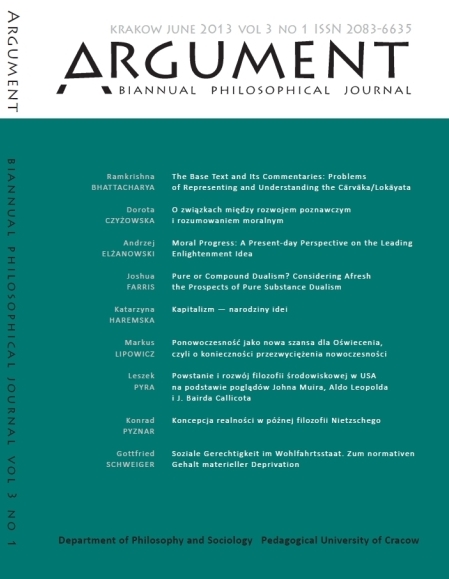Powstanie i rozwój filozofii środowiskowej w USA na podstawie poglądów Johna Muira, Aldo Leopolda i J. Bairda Callicota
Keywords:
naturalistic fallacy, wild nature, ecology, land ethic, holistic environmental philosophyAbstract
The Origin and Development of Environmental Philosophy in the US according to John Muir, Aldo Leopold and J. Baird Callicot: The publication refers to environmental philosophy, which is also called ecological philosophy or ecophilosophy. It shows in what way philosophical reflection on the environment has been shaped in the American tradition. In this context, the views of the thinkers listed below have been presented, analysed and evaluated. John Muir, an astute observer of wild nature, has been presented as an enthusiast and a prophet persuading a return to nature. Muir was a forester under the strong influence of the representatives of transcendentalism. As an activist, he founded national parks that served to preserve virgin areas, and as a writer he popularized the concept of the preservation of wild areas. For many representatives of ecophilosophy, the views of Aldo Leopold, as expressed in his well-known work, A Sand County Almanac, constituted a new pattern of thinking about wild nature. The book itself is almost generally regarded as a bible of environmental philosophy. Leopold, a forester interested in philosophy, created the fundamentals of holistic environmental philosophy, but the theory he developed is not without defects, to which some attention has been paid in this paper. The theory of J. Baird Callicot presents the attitude of an academic philosopher with regard to wild nature. His attitude is fully professional as regards the applied method, thus allowing the author to avoid committing a naturalistic fallacy. Callicot reinterprets the issues of facts and values, because he thinks that the discoveries of the dynamically developing ecology make possible the reformulation of the traditional approach to such issues by utilising a spirit of acceptance, and lead to a shift from is to ought to be.


